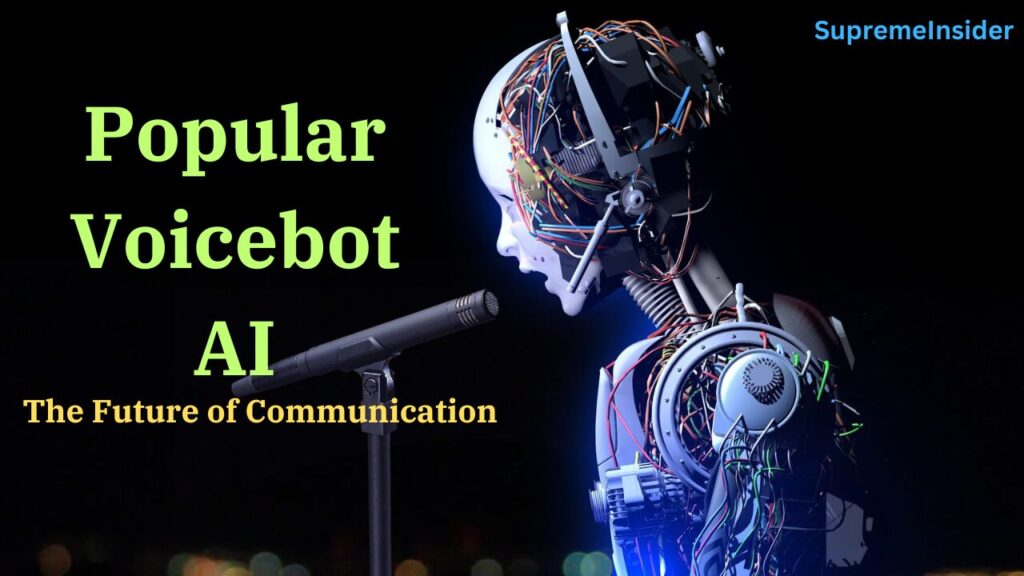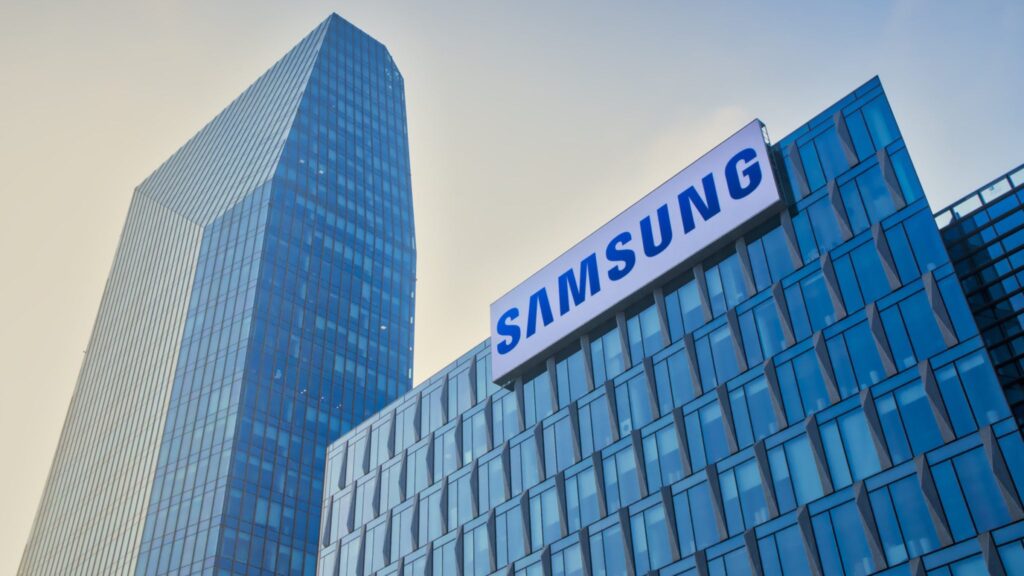First, let’s learn about Voicebot AI: They apply Artificial Intelligence (AI) to respond using AI technologies like the processing of different natural languages and speech recognition software to convert speech to text. The response is then transformed back into speech through the use of text-to-speech AI software. For Example, China is one of the countries where most people try to speak English, however many of them are not native speakers. In this case, the Voicebot AI Technology makes it possible for everyone to easily and simply interact with the world over and other approaches. Similar to how Apple’s Siri and Google Assistant are beaten by Amazon’s Alexa in speech AI technology.

The most popular voice bot AI Platforms
Alexa (the voice bot of Amazon) Beats Google Assistant and Siri (the voice bot of Apple) in Voice AI Technology.
1. Alexa: Amazon’s Voice Service:

Alexa, the voice service offered by Amazon, is a multipurpose virtual assistant that is well-known for its broad range of features and popular uses. Alexa’s status as a dominant force in voice bot technology is confirmed by the fact that users can do tasks like managing smart home devices, playing music, creating reminders, and retrieving information from multiple sources with voice commands. Redefining how people interact with technology in their homes and everywhere else, Alexa offers a wide range of third-party services that are compatible with Amazon Echo devices and integrate easily with them.
2. Siri: Apple’s Virtual Assistant:

Apple’s virtual assistant, Siri, can do a lot of things. It can answer questions about a variety of subjects, retrieve information via voice commands, and help with organizing personal tasks and everyday tasks. Siri offers human-like commands to let people carry out a number of operations without using their hands. Siri can also be used to do tasks including making calls, sending messages, playing music, setting alarms and almost anything as per people’s commands.All things considered, Siri’s new features keep improving user accessibility, convenience, and efficiency in routine tasks and interactions.
3. Google Assistant: Developed by Google:

Google Assistant is a useful companion that transforms the user experience with its extensive feature collection and user-friendly interface. With its seamless multi-platform integration, it gives users voice commands for anything from messaging and reminders to managing smart home appliances and web information access. Google Assistant has revolutionized convenience and efficiency in everyday tasks with its sophisticated artificial intelligence and extensive integration with Google’s ecosystem. It has become a key companion for users worldwide.
4. Bixby: Samsung’s Voice Assistant

Samsung’s voice assistant, Bixby, provides consumers with an unique and easy method to communicate with devices and access services. Bixby’s strong integration into Samsung’s ecosystem allows users to leverage contextual understanding and natural language commands to control their devices, carry out tasks, and access information. Samsung’s dedication to innovation and consumer convenience is shown in Bixby’s smooth and personalized experience, which ranges from managing daily schedules to controlling smart home devices and also any more.
5. Cortana: Microsoft’s Virtual Assistant

Microsoft’s virtual assistant Cortana is a sophisticated artificial intelligence (AI) friend that can help users on a variety of platforms and devices. Cortana improves productivity and convenience by providing voice-activated help for tasks like making appointments, sending emails, and conducting online searches through its interaction with Microsoft products and Windows operating systems. Constantly adding new features and functionalities, Cortana represents Microsoft’s aim of providing customers with seamless, personalized help and displays the company’s dedication to the advancement of artificial intelligence.
6. Watson Assistant: Developed by IBM

IBM created Watson Assistant, a sophisticated virtual assistant driven by AI that is intended to aid companies in creating and implementing conversational interfaces across a range of platforms. By utilizing Watson Assistant’s natural language processing (NLP) and machine learning capabilities, businesses can develop personalized chatbots and voicebots that can comprehend and react to consumer inquiries instantly. Businesses can streamline customer interactions, automate tasks, and provide personalized experiences across web, mobile, messaging, and IoT devices using Watson Assistant’s flexibility and scalability.
7. Hound: developed by SoundHound Inc

The state-of-the-art voice assistant Hound, created by SoundHound Inc., is well-known for its amazingly quick answers and sophisticated natural language processing abilities. compared to conventional assistants, Hound is exceptional at handling difficult and complex searches, delivering clear and pertinent outcomes quickly. Hound is a strong and user-friendly voice assistant choice for individuals looking for efficiency and accuracy in their interactions. It can manage contextually rich conversations and execute activities like web searches, navigation, and local business inquiries with ease.
8. Viv: independent project by the creators of Siri

Viv is a ground-breaking voice assistant platform that was first created as a standalone project by the people behind Siri and then included in Samsung’s Bixby. It is renowned for its emphasis on conversational AI and natural language interpretation. With voice commands, Viv hopes to give users a more dynamic and personalized experience by facilitating smooth contact with a range of services and gadgets. Voice assistants have come a long way, and Viv offers a promising future for intelligent and intuitive virtual assistants with its sophisticated grasp of context, ability to learn user preferences, and ability to perform difficult tasks.
9. Mycroft: Mycroft AI Inc.

With the help of the open-source voice assistant platform Mycroft, users may design and personalize their own speech-activated gadgets and apps. Mycroft, which is based on openness and privacy, enables people to engage with technology in a way that respects their information and choices. Mycroft provides flexibility and scalability with its modular architecture and large developer community, which makes it a great option for individuals who want to create customized voice assistant solutions that meet their unique requirements. Mycroft offers a customizable and privacy-focused voice assistant solution for home automation, work, or entertainment.
10. Snips: Snips SAS

The modern voice assistant platform Snips is well-known for its emphasis on offline functionality and privacy. Snips function solely on-device, guaranteeing that user interactions are private and secure, in contrast to standard voice assistants that rely on cloud servers to handle user data. Snips lets customers accomplish a lot of things without internet access, like managing smart home devices, scheduling reminders, and retrieving data, by utilizing machine learning and natural language understanding. Snips is a distinctive and worthwhile alternative in the voice assistant market, appealing to consumers who value data security and autonomy with its dedication to user privacy and local processing.
11. AliGenie: developed by Alibaba Group

Alibaba Group created the voice assistant platform AliGenie, which offers a smooth integration into Alibaba’s network of goods and services. AliGenie offers a plethora of features, such as voice-activated shopping, smart home automation, entertainment, and more, all tailored to meet the demands of Chinese consumers. Thanks to AliGenie’s extensive integration with Alibaba’s e-commerce systems and natural language processing capabilities, consumers can easily order products, check the status of their orders, and manage their shopping lists using voice commands. Being one of the top voice assistant platforms in China, AliGenie has a big influence on how speech-activated technology and e-commerce develop in the country.
12. Dragon Assistant: developed by Nuance Communications

The advanced voice assistant Dragon Assistant from Nuance Communications is made to help users be more productive and efficient on both desktop and mobile devices. With the help of Dragon Assistant, which makes use of Nuance’s cutting-edge speech recognition technology, users can carry out a variety of tasks hands-free, including as sending emails, making appointments, browsing the internet, and managing device settings. Over time, Dragon Assistant learns to recognize individual preferences and speech patterns and provides increasingly accurate and customized responses thanks to its user-friendly interface and personalized experience. Dragon Assistant is a robust and adaptable voice assistant system, suitable for professionals trying to optimize their workflow or individuals seeking simple hands-free interactions.
A Comparision of These Populer Voicebot Tecnology:
1. Alexa:
– Features: Extensive range of skills, smart home integration, third-party app support.
– Performance: Fast response times, accurate voice recognition.
– Popularity: Widely adopted, especially with Amazon Echo devices.
2. Siri:
– Features: Integration with Apple devices and services, personalized responses.
– Performance: Seamless user experience, context-aware interactions.
– Popularity: Pre-installed on millions of Apple devices, strong user base.
3. Google Assistant:
– Features: Natural language processing, deep integration with Google services.
– Performance: Robust voice recognition, proactive suggestions.
– Popularity: Popular on Android devices, expanding ecosystem of compatible devices.
4. Bixby:
– Features: Samsung device integration, customizable commands.
– Performance: Continuously improving, especially with Samsung’s flagship devices.
– Popularity: Growing user base, particularly among Samsung users.
5. Cortana:
– Features: Integration with Microsoft ecosystem, productivity-focused features.
– Performance: Competent voice recognition, personalized user experience.
– Popularity: Initially strong, but declining due to decreased focus from Microsoft.
6. Watson Assistant:
– Features: Enterprise-level AI solutions, customizable chatbots.
– Performance: Highly adaptable, scalable for business needs.
– Popularity: Mainly utilized in enterprise environments, limited consumer adoption.
7. Hound:
– Features: Lightning-fast responses, complex query processing.
– Performance: Exceptional voice recognition, advanced natural language understanding.
– Popularity: Recognized for its speed and accuracy, but smaller user base compared to mainstream assistants.
8. Viv:
– Features: Conversational AI, seamless integration with Samsung’s ecosystem.
– Performance: Emphasis on personalization, capable of complex interactions.
– Popularity: Integrated into Samsung’s Bixby, limited standalone presence.
9. Mycroft:
– Features: Open-source platform, customizable voice assistant.
– Performance: Community-driven development, privacy-focused.
– Popularity: Niche audience interested in privacy and customization options.
10. Snips:
– Features: Offline functionality, privacy-focused.
– Performance: Local processing, no data sent to the cloud.
– Popularity: Growing interest among privacy-conscious users, limited mainstream adoption.
11. AliGenie:
– Features: Integration with Alibaba’s ecosystem, voice-controlled shopping.
– Performance: Tailored for Chinese users, extensive e-commerce capabilities.
– Popularity: Dominant in the Chinese market, limited presence outside of China.
12. Dragon Assistant:
– Features: Desktop and mobile integration, productivity-focused tasks.
– Performance: Accurate speech recognition, personalized user experience.
– Popularity: Widely used in professional settings, limited consumer adoption.